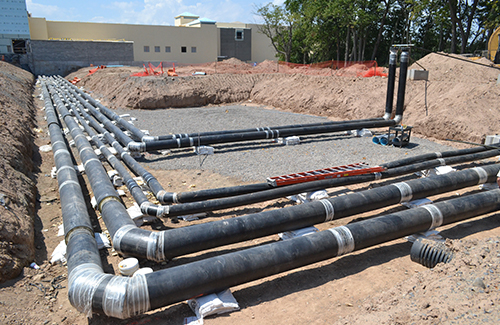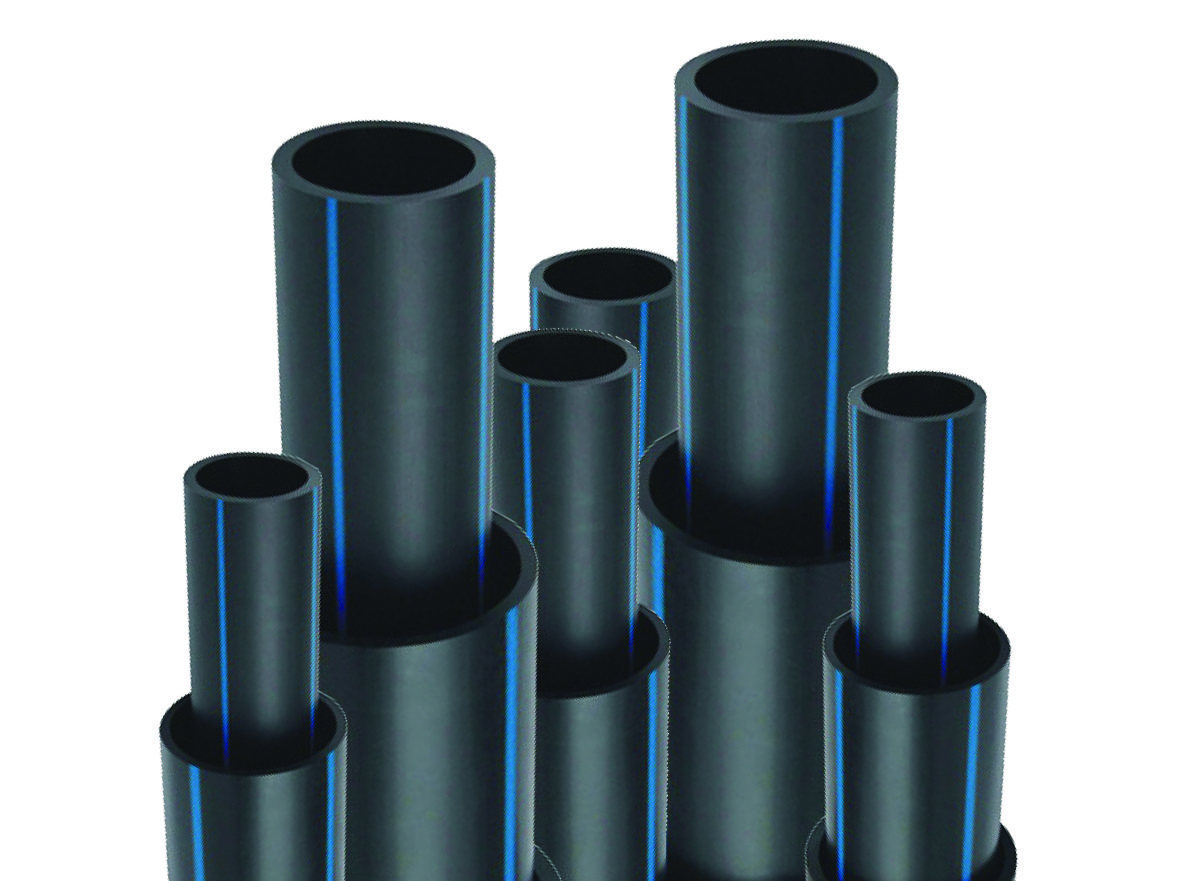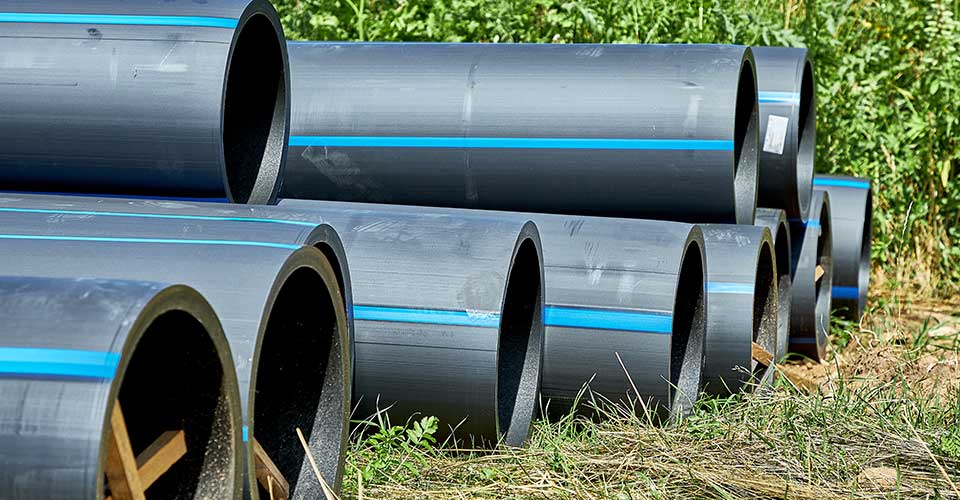Why an HDPE Pipe Supplier is key to sustainable infrastructure
Wiki Article
Checking Out the Leading Pipeline Manufacturers: Top Quality, Integrity, and Technology
The pipeline manufacturing sector stands at the junction of high quality, technology, and integrity, driven by leading companies such as Tenaris and Vallourec. These makers are not only committed to creating high-performance materials but are also pioneering lasting methods that attend to contemporary environmental problems (HDPE Pipe Supplier). As we examine the requirements that specify quality in pipeline services, it comes to be apparent that the landscape is swiftly developing. What certain developments are arising, and just how are these advancements forming the future of pipeline framework? The solutions might redefine market requirements in manner ins which are not yet completely comprehendedLeading Manufacturers Overview
In the domain of pipeline manufacturing, numerous principals become leaders, each contributing substantially to the industry's landscape. Business such as Tenaris, Vallourec, and JFE Steel have established themselves as frontrunners by consistently delivering high-quality products that fulfill strict market requirements. Tenaris, renowned for its cutting-edge options, specializes in smooth and bonded pipes, catering mainly to the oil and gas field. Vallourec, a French multinational, concentrates on the production of costs tubular remedies, stressing sustainability and progressed modern technology in its manufacturing procedures.JFE Steel, a significant Japanese manufacturer, is identified for its considerable variety of steel pipelines, particularly those made use of in energy and infrastructure jobs. Their commitment to study and development has allowed them to generate high-performance products that stand up to harsh ecological problems. In addition, business like united state Steel and National Oilwell Varco have actually increased their market visibility by expanding their product offerings and improving functional efficiencies.
These leading makers not only dominate the market yet additionally drive development within the market, setting criteria for high quality and reliability that gamers strive to accomplish. Their contributions are crucial for satisfying the enhancing demand for long lasting and reliable pipeline options worldwide.
Criteria for Top Quality Assessment
Quality assessment in pipeline manufacturing depends upon 2 crucial standards: material resilience criteria and making process effectiveness. Making sure that products fulfill extensive durability standards is crucial for the longevity and integrity of pipelines. In addition, optimizing the manufacturing process can enhance efficiency while preserving premium quality, inevitably affecting total efficiency and security.Material Toughness Criteria
Assuring the durability and dependability of pipeline products is important for keeping facilities honesty and functional efficiency. Product longevity standards play an essential role in examining the top quality of pipelines, dictating the performance and lifespan of the materials used in building. Manufacturers should follow a variety of rigorous requirements, including those established by organizations such as ASTM International and the American Petroleum Institute (API)These requirements assess different aspects, consisting of rust resistance, tensile strength, and tiredness performance. Pipes utilized in harsh environments need products that can endure chemical degradation, while those subjected to high-pressure conditions should show extraordinary tensile stamina.
Furthermore, factors such as temperature variations and ecological conditions have to be considered, as these can significantly influence product habits over time. Manufacturers usually utilize innovative testing methods, including accelerated aging tests, to imitate long-term wear and guarantee that materials surpass or fulfill market criteria.
Manufacturing Process Performance
Manufacturers' ability to maximize making procedure effectiveness is essential for producing high-grade pipelines that meet rigorous sector criteria. Performance in producing directly affects cost administration, production timelines, and overall product honesty. To accomplish this, leading pipeline producers implement advanced techniques such as lean manufacturing, automation, and real-time data analytics.Lean making concepts are vital in reducing waste and taking full advantage of source utilization. By enhancing processes and getting rid of redundancies, producers can improve productivity while making certain regular quality. Automation technologies, including robotics and computer mathematical control (CNC) machines, play a pivotal role in boosting accuracy and lowering human error, therefore raising the dependability of the final product.
Furthermore, the usage of real-time data analytics allows producers to monitor production processes continuously, allowing them to determine bottlenecks and make timely modifications. This aggressive technique not only boosts effectiveness however likewise sustains quality control methods by ensuring conformity with regulative criteria.
Reliability in Pipeline Solutions
Dependability in pipeline remedies is paramount, as it directly affects the safety and security and effectiveness of fluid transport systems. Secret aspects consist of the sturdiness of products made use of, adherence to rigorous testing and qualification criteria, and the unification of innovative product solutions that boost performance. Comprehending these aspects is important for makers aiming to provide trustworthy pipeline facilities.Relevance of Sturdiness
Attaining sturdiness in pipeline options is important, as it straight affects the long-lasting performance and safety of infrastructure. Sturdy pipelines are vital for lessening maintenance prices and reducing the likelihood of devastating failings. This reliability is especially crucial in sectors such as oil and gas, supply of water, and wastewater monitoring, where the consequences of pipeline failure can be serious, both economically and eco.The products and making procedures used by pipeline makers play a significant duty in figuring out the sturdiness of the end product. Making use of top quality basic materials, progressed technologies, and innovative design concepts assures that pipelines can hold up against different stressors, including pressure fluctuations, temperature level variants, and corrosive environments.
Moreover, the durability of pipes is closely linked to their capacity to withstand outside variables such as dirt motion, seismic task, and chemical direct exposures. Effective rust protection techniques, such as coatings and cathodic protection, better enhance the longevity of pipes, safeguarding them against degeneration over time.
Investing in sturdy pipeline options inevitably converts to increased functional efficiency, lowered downtime, and boosted safety, affirming the important value of toughness in modern-day pipeline manufacturing.
Examining and Accreditation Requirements
In the domain of pipeline solutions, rigorous testing and accreditation standards are essential to guarantee the reliability and security of infrastructure. These requirements work as criteria for examining the efficiency and toughness of pipeline materials and systems, verifying they satisfy details regulative and sector demands.Evaluating procedures normally include different techniques, consisting of stress testing, hydrostatic examinations, and non-destructive screening techniques. These assessments are essential for determining possible weak points or problems in the products before they are deployed in real-world applications. Additionally, certification by recognized companies assurances that manufacturers follow developed guidelines, which fosters trust among stakeholders, including end-users, engineers, and specialists.
Lots of prominent pipeline manufacturers engage in continual tracking and enhancement of their screening protocols to adapt to advancing industry criteria and technological advancements. Conformity with standards such as ASTM, ASME, and ISO not just boosts product integrity yet additionally decreases the danger of ecological incidents linked with pipeline failings.
Cutting-edge Material Solutions
The growth of ingenious product remedies has actually changed the landscape of pipeline manufacturing, boosting both performance and durability. Advanced products such as high-density polyethylene (HDPE), cross-linked polyethylene (PEX), and composite materials have arised as game-changers, supplying premium resistance to corrosion, temperature level changes, and pressure variants. These materials not only expand the lifespan of pipes however additionally lower upkeep expenses, guaranteeing trustworthy long-term performance.Additionally, makers are progressively adopting wise materials that incorporate sensing units for real-time tracking. This technology enables for aggressive maintenance, significantly improving dependability by detecting leakages or architectural weak points before they intensify into essential failures. The integration of nanotechnology has actually additionally resulted in the growth of coatings that boost the resilience of pipelines against abrasion and chemical direct exposure.
Sustainability is another vital focus, with manufacturers checking out bio-based composites and recyclable materials that decrease environmental impact. As regulatory standards proceed to progress, the focus on cutting-edge product solutions comes to be paramount in meeting rigid security and environmental needs. Ultimately, these developments not just enhance the integrity of pipeline systems but also add to the total effectiveness and sustainability of energy transportation facilities.
Advancements in Pipeline Innovation
Advancements in pipeline technology are transforming the industry by improving effectiveness, safety and security, and environmental sustainability. Recent innovations focus on clever pipeline systems that make use of sensing units and IoT technology to monitor conditions in genuine time, making it possible for positive maintenance and reducing the risk of failures. These systems can discover leaks, stress modifications, and other abnormalities, permitting quick feedback and decreasing environmental influence.Additionally, the advancement of innovative materials, such as corrosion-resistant and composite alloys, significantly prolongs the life expectancy and integrity of pipelines. Pipeline Manufacturer (American Plastics LLC HDPE Pipeline Manufacturer). These materials reduce upkeep costs and boost performance in harsh environments, making them ideal for water, gas, and oil transport
Furthermore, automation and robotics are playing a crucial duty in pipeline building and construction and inspection. Drones and robotic gadgets assist in surveys and analyses of hard-to-reach locations, making sure thorough evaluations without jeopardizing safety.
In addition, cutting-edge designs, such as modular pipeline systems, enable better adaptability in setup and adjustment, dealing with the dynamic requirements of the power industry. Together, these technological advancements not only boost operational efficiency but likewise add to a much more resilient and lasting pipeline infrastructure, paving the means for a greener future.
Situation Studies of Success
Throughout different sectors, effective executions of innovative pipeline technologies demonstrate substantial improvements in operational performance and safety. One notable situation is the release of smart pipeline surveillance systems in the oil and gas industry, where real-time information analytics have minimized leak discovery times by over 50%. This not only reduces environmental threats but also enhances the general stability of pipeline infrastructure.
In addition, a significant manufacturer implemented robotic inspection technologies in its pipeline upkeep procedures, leading to a 40% improvement in examination effectiveness. This strategy has streamlined maintenance timetables and substantially lowered downtime.
These case studies highlight how leading pipeline suppliers are leveraging cutting-edge modern technologies to promote reliability and operational excellence, inevitably establishing new criteria for the sector. As these successes remain to unfold, they lead the way for additional improvements in pipeline manufacturing and monitoring.

Environmental Sustainability Practices
Frequently, pipeline makers are prioritizing environmental sustainability methods to alleviate their eco-friendly impact and improve the durability of their items. This dedication is shown in different campaigns targeted at decreasing waste, saving energy, and utilizing lasting materials throughout the manufacturing procedure.
Many suppliers are taking on sophisticated innovations that minimize exhausts and energy consumption. The combination of automated systems and energy-efficient equipment aids streamline production while lowering reliance on fossil fuels. Furthermore, business are increasingly turning to environment-friendly products, such as recycled steels and bioplastics, which not only lower the environmental influence yet also advertise a circular economic situation.
Additionally, pipeline suppliers are carrying out rigorous lifecycle evaluations to review the environmental implications of their products from inception to read here disposal. This technique allows them to determine opportunities for renovation and foster responsible sourcing and waste monitoring techniques.
Partnership with ecological companies further boosts these initiatives, as suppliers look for to straighten their procedures with worldwide sustainability objectives. Ultimately, these ecological sustainability methods not just add to a healthier planet however also position makers as responsible leaders in the sector, interesting ecologically aware stakeholders and customers alike.
Future Patterns in Pipeline Manufacturing
As the need for a lot more effective and lasting infrastructure expands, pipeline manufacturing is poised for considerable developments that will reshape the sector. Trick trends expected in the coming years consist of the combination of sophisticated materials, such as composite and corrosion-resistant alloys, which enhance longevity while lessening ecological impact. Manufacturers are also anticipated to embrace innovative production techniques, like additive manufacturing and automation, to improve processes, decrease waste, and reduced costs.Furthermore, the increase of clever pipeline technologies, including sensors and IoT devices, will allow real-time surveillance and anticipating upkeep, thereby improving safety and operational effectiveness. This electronic change will not only optimize resource monitoring yet additionally promote conformity with stringent environmental laws.
Sustainability will certainly continue to be a main emphasis, driving makers to buy environmentally friendly practices, consisting of energy-efficient manufacturing techniques and recycling campaigns. As the international emphasis on environment modification increases, pipeline manufacturers will need to adjust by developing solutions that fulfill both financial and environmental demands.
Frequently Asked Concerns

What Industries Mostly Utilize Pipeline Products From These Manufacturers?
Pipeline items are primarily used in industries such as oil and water, wastewater and gas management, chemical mining, building, and processing. These markets count on efficient, sturdy, and safe transport of fluids and products.
How Do Manufacturers Make Certain Compliance With International Pipeline Specifications?
Manufacturers assure compliance with worldwide pipeline criteria by executing extensive quality assurance processes, carrying out routine examinations, sticking to well established governing structures, and investing in employee training to promote understanding and understanding of security and high quality requirements.What Is the Typical Life Expectancy of Pipelines From Leading Manufacturers?
The typical life expectancy of pipes from leading makers commonly varies from 30 to 100 years, relying on product, ecological conditions, and upkeep techniques. American Plastics LLC HDPE Pipeline Manufacturer. Normal examinations and adherence to sector criteria substantially affect durability and performanceAre There Certifications Specific to Pipeline Manufacturing Top Quality?
Yes, numerous qualifications exist for pipeline producing quality, consisting of ISO 9001 for top quality administration systems and API standards specific to pipes. These qualifications ensure adherence to rigorous safety and security, efficiency, and environmental criteria within the market.How Do Manufacturers Handle Pipeline Upkeep and Fixes?
Manufacturers generally apply an aggressive upkeep approach that consists of regular inspections, checking systems for early discovery of problems, and a structured repair service protocol. This strategy assurances pipeline honesty, reduces downtime, and boosts general functional performance.Quality analysis in pipeline manufacturing pivots on 2 critical requirements: material resilience criteria and producing procedure performance - Pipeline Manufacturer. Product durability requirements play a vital role in reviewing the top quality of pipelines, dictating the performance and life-span of the products used in building. The products and making procedures utilized by pipeline manufacturers play a considerable function in figuring out the durability of the final product. The typical life-span of pipes from leading makers usually varies from 30 to 100 years, depending on product, ecological conditions, and upkeep practices. Yes, numerous qualifications exist for pipeline manufacturing high quality, consisting of ISO 9001 for high quality monitoring systems and API criteria specific to pipes
Report this wiki page